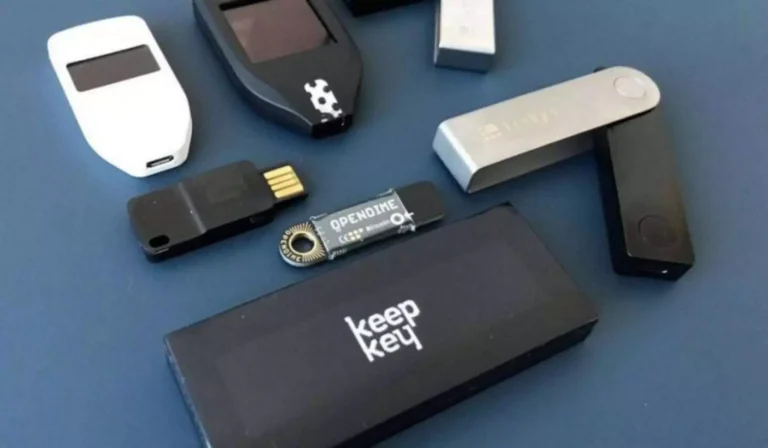Content
Retail trades from individual investors are especially attractive to market makers because they are generally small and can be turned around quickly for a profit. Treasury Accounts.Investing services in treasury accounts offering 6 month US Treasury Bills on the Public platform are through Jiko Securities, Inc. (“JSI”), a registered broker-dealer and member of FINRA & SIPC. See JSI’s FINRA BrokerCheck and Form CRS for further information.JSI uses funds from your Treasury Account pfof meaning to purchase T-bills in increments of $100 “par value” (the T-bill’s value at maturity). The value of T-bills fluctuate and investors may receive more or less than their original investments if sold prior to maturity. T-bills are subject to price change and availability – yield is subject to change.
- Supporting documentation for any claims will be furnished upon request.
- Some—including SEC chair Gary Gensler—floated a potential ban of the practice.
- Theoretically, market makers are offering the best price available for retail investors.
- Order processing software is designed to assist in the management and execution of your order processing procedures.
- For this operation to be successful, the unpaid order items must adhere to this time limit.
- In this scenario, an agent just forwards card details to the carrier, which collects a traveler’s money directly.
What’s Vanguard’s PFOF philosophy?

The additional order flow that market makers receive from brokers can help them manage their inventory and balance their risk. Hence, they pay brokers for orders because they mean a steady stream of trades, which can be crucial for having enough securities to act as market makers and for profitability. Grasping how PFOF works enables investors to appreciate how no trade is really free because if they aren’t paying for the services involved in trading, then someone else is. In this case, a large part of the cost for trading is taken up by market makers and other “wholesalers” in the PFOF to brokers. As reports from SEC studies have shown, clients, at https://www.xcritical.com/ least in some cases, may be paying more in the end despite discounted or free trading for many.

Is Public PFOF free? What does it mean for me?
Broker-dealers like Robinhood, Charles Schwab, and TD Ameritrade traditionally had several sources of revenue. They received fees from their customers in the form of trading commissions, sales commissions on mutual funds and other products, margin account fees, and investment advisory fees. However, that has changed with the advent of commission-free trading. Since most retail brokers sell their orders to market makers, nearly 50% of orders are executed away from the exchanges. As a result, liquidity at the exchanges has diminished and it is likely that the NBBO is now wider than it would be if all orders went to the exchanges. So although market makers do give a slight improvement over the NBBO, if they did not divert orders from the exchanges it is likely the NBBO would be narrower.
Why payment for order flow is a good deal for investors
Let’s say a market maker purchased 100 shares of Apple (AAPL) stock from a retail seller for $152.01 per share, and then turned around and sold the stock to a retail buyer at a price of $152.04 per share. The more order flow the market makers receive from the likes of Robinhood, the more profit they can generate from the bid-ask spread. Brokerages earn more when they send more trades to the market makers. A market maker buys shares of stock at a lower price than the price at which it sells shares, a difference known as the bid-ask spread.
Index options have special features and fees that should be carefully considered, including settlement, exercise, expiration, tax, and cost characteristics. Supporting documentation for any claims will be furnished upon request. To learn more about options rebates, see terms of the Options Rebate Program. Rebate rates vary monthly from $0.06-$0.18 and depend on your current and prior month’s options trading volume. The pushback on payment for order flow is proof that we dont have to take stock market norms at face value.
Typically, brokerages make their revenue by providing various products and services to their customers, over 75% of which are retail investors. ‘Commission free’ means investors don’t pay a fee to their brokerage every time they buy or sell a stock. The practice of PFOF has always been controversial for reasons touched upon above.

When an investor submits an order to buy or sell a stock, their broker passes the order along to a third party to execute the trade and perform the transaction. What form those new rules take, and how popular they prove with retail investors, remains to be seen. The SEC proposed Rule 615, the “Order Competition Rule,” which would require broker-dealers to auction customer orders briefly in the open market before executing them internally or sending them to another trading center. This is intended to allow others to act on these orders, providing greater competition and potentially better results for investors. Here are some tips for revamping your order processing workflow to make it more efficient, less prone to mistakes, and more profitable for your business.
Newer brokerages like Public are doing away with PFOF altogether, and maintaining quality-price execution without routing to market makers. Learning the mechanisms of the market can help avoid a world of hurt, and offer some peace of mind. Educational resources, like those at Public.com, are a great place to start.
With over 20+ years of experience, the B2BE teams operate worldwide. For example, if there was a change in flight dates, the record will provide a reason for that, such as a schedule change due to bad weather. Under the hood, each stage comprises a set of capabilities realized via specific request-response transactions between an airline and a sales channel. From a technical perspective, this meant handling a separate API and booking process for each channel type. Our team was engaged in building direct and NDC distribution channels. In both cases, we considered following an OOM roadmap proposed by IATA to minimize development time and effort.
Security futures involve a high degree of risk and are not suitable for all investors. The amount you may lose may be greater than your initial investment. Before trading security futures, read the Security Futures Risk Disclosure Statement. Structured products and fixed income products such as bonds are complex products that are more risky and are not suitable for all investors. Before trading, please read the Risk Warning and Disclosure Statement.
Essentially the market maker is sharing a portion of the profits they earn from making a market with the broker who routes the order to them. This payment typically amounts to a fraction of a penny per share on equity securities. Investments in Bonds are subject to various risks including risks related to interest rates, credit quality, market valuations, liquidity, prepayments, early redemption, corporate events, tax ramifications and other factors. The value of Bonds fluctuate and any investments sold prior to maturity may result in gain or loss of principal. In general, when interest rates go up, Bond prices typically drop, and vice versa. Bonds with higher yields or offered by issuers with lower credit ratings generally carry a higher degree of risk.
Costs for active traders have come down dramatically, to the benefit of investors. For now, retail investors in the United States seem to be benefiting from the current system. The report provides transparency in this area, allowing investors to understand how their orders are routed and executed, and to identify any potential conflicts of interest. Broker-dealers must disclose the nature of any compensation received in return for routing orders, as well as the overall process they use for order routing decisions.
A PFOF trader is just another word for a broker-dealer who uses PFOF to execute retail orders. Members of the Public.com community can opt to leave a tip to help pay for the cost of trade execution. Wayne Duggan has a decade of experience covering breaking market news and providing analysis and commentary related to popular stocks. News & World Report and a regular contributor for Forbes Advisor and USA Today. Meanwhile the Financial Industry Regulatory Authority (FINRA) conducts examinations and audits to ensure brokers are meeting best execution standards.
